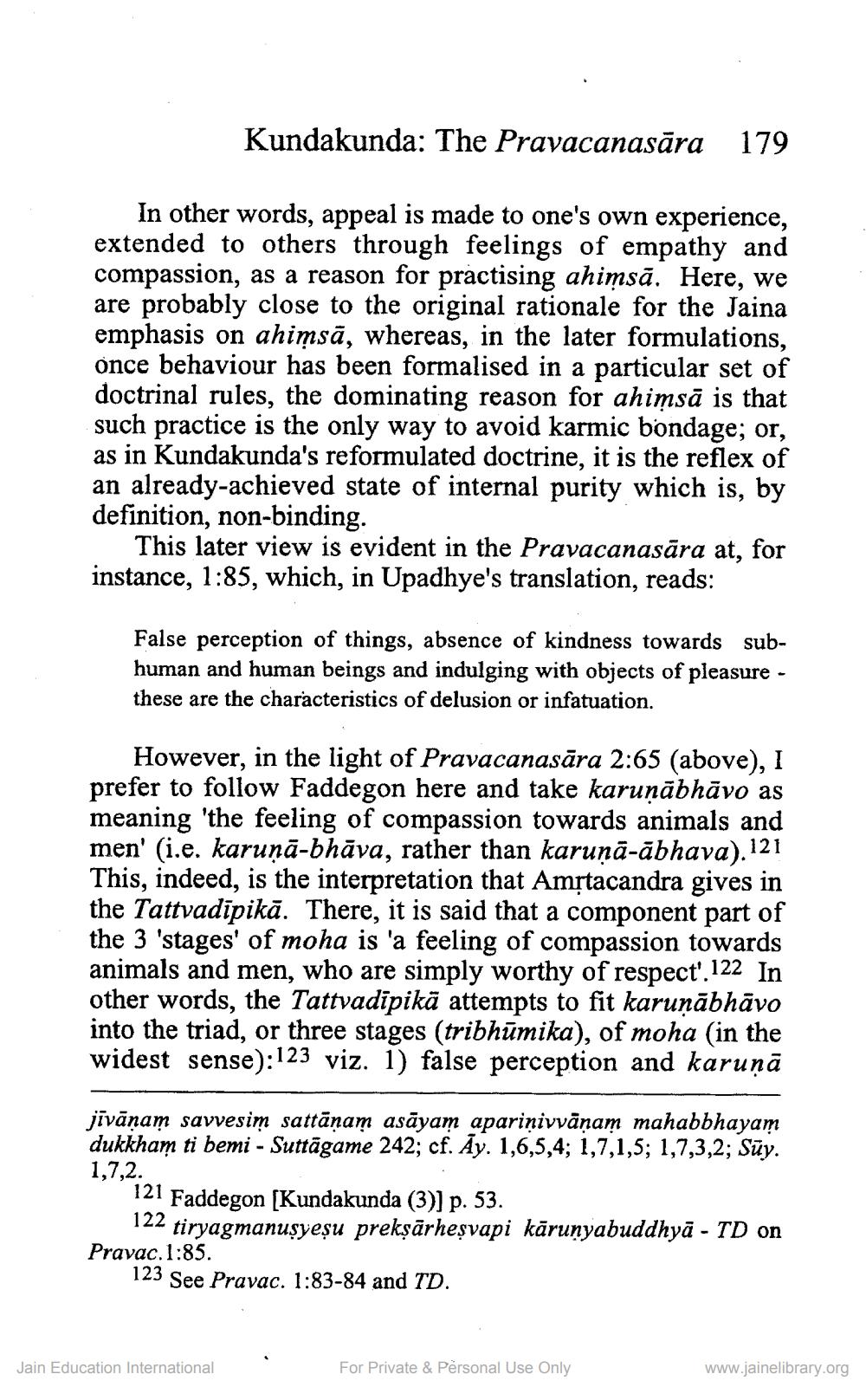________________
Kundakunda: The Pravacanasāra 179
In other words, appeal is made to one's own experience, extended to others through feelings of empathy and compassion, as a reason for practising ahimsā. Here, we are probably close to the original rationale for the Jaina emphasis on ahimsa, whereas, in the later formulations, once behaviour has been formalised in a particular set of doctrinal rules, the dominating reason for ahimsā is that such practice is the only way to avoid karmic bondage; or, as in Kundakunda's reformulated doctrine, it is the reflex of an already-achieved state of internal purity which is, by definition, non-binding.
This later view is evident in the Pravacanasāra at, for instance, 1:85, which, in Upadhye's translation, reads:
False perception of things, absence of kindness towards subhuman and human beings and indulging with objects of pleasure - these are the characteristics of delusion or infatuation.
However, in the light of Pravacanasāra 2:65 (above), I prefer to follow Faddegon here and take karuṇābhāvo as meaning 'the feeling of compassion towards animals and men' (i.e. karuṇā-bhāva, rather than karuṇā-ābhava).121 This, indeed, is the interpretation that Amṛtacandra gives in the Tattvadīpikā. There, it is said that a component part of the 3 'stages' of moha is 'a feeling of compassion towards animals and men, who are simply worthy of respect'. 122 In other words, the Tattvadipika attempts to fit karuṇābhāvo into the triad, or three stages (tribhūmika), of moha (in the widest sense):123 viz. 1) false perception and karuṇā
jīvānam savvesim sattāṇam asāyam apariṇivvāṇam mahabbhayam dukkham ti bemi - Suttagame 242; cf. Ay. 1,6,5,4; 1,7,1,5; 1,7,3,2; Suy.
1,7,2.
121 Faddegon [Kundakunda (3)] p. 53.
122 tiryagmanuşyeṣu prekṣārheṣvapi kāruṇyabuddhyā - TD on
Pravac. 1:85.
123
See Pravac. 1:83-84 and TD.
Jain Education International
For Private & Personal Use Only
www.jainelibrary.org




